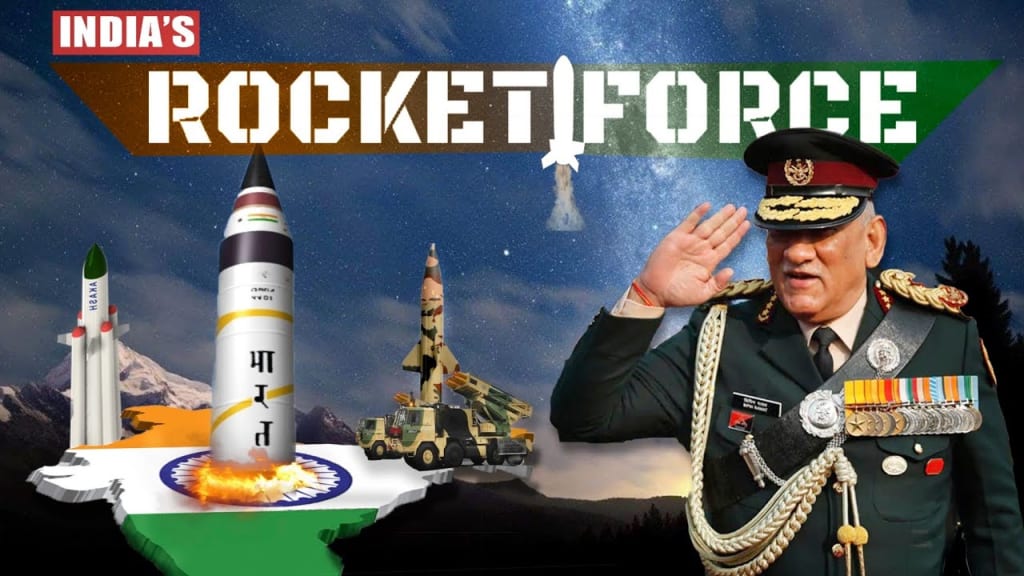
The Indian military is one of the world's largest and most advanced armed forces, with a variety of specialized branches that support its mission to protect and defend the country. One of these branches is the Indian Rocket Force, which is responsible for the country's strategic missile forces.
The Indian Rocket Force was established in 2015 as a separate branch of the Indian military, replacing the Strategic Forces Command. The primary mission of the Rocket Force is to maintain a credible nuclear deterrent against potential adversaries, particularly Pakistan and China.
The Rocket Force is responsible for operating and maintaining India's ballistic missiles, which include the Agni series of missiles, the Prithvi series, and the Surya missile. These missiles are capable of delivering nuclear warheads to a range of targets, both within India and beyond its borders.
In addition to its strategic missile forces, the Rocket Force is also responsible for the development and deployment of India's space-based assets, including its satellite-based navigation and communication systems. The Indian Space Research Organization (ISRO) works closely with the Rocket Force to develop and deploy these systems, which are critical to India's national security and economic development.
The Rocket Force is headquartered in the Indian city of Bengaluru, and is led by a three-star general. The force is divided into several operational units, each responsible for a different aspect of its mission. These units include missile squadrons, which operate and maintain the missiles themselves, as well as support units responsible for logistics, training, and other critical functions.
One of the key challenges facing the Rocket Force is ensuring the safety and security of its nuclear weapons and missile systems. To this end, the force operates under strict protocols and procedures designed to prevent accidental or unauthorized launch of its weapons. In addition, the force is heavily involved in research and development efforts aimed at improving the safety and reliability of its nuclear arsenal.
Despite its critical role in India's defense, the Rocket Force remains relatively unknown outside of military circles. However, as tensions continue to rise between India and its neighbors, particularly China and Pakistan, the force is likely to play an increasingly prominent role in shaping the country's strategic posture in the years to come.
India has also developed an intercontinental ballistic missile (ICBM) called Agni-V which has a range of over 5,000 kilometers. The missile is said to be capable of carrying a nuclear warhead and has been successfully tested multiple times. This missile is also said to be a part of India's nuclear deterrent strategy.
The Indian Rocket Force is also known to have developed missiles with capabilities for tactical, strategic and deterrent purposes. The Agni-IV missile is said to be capable of hitting targets at a range of 4,000 kilometers while the Agni-III missile has a range of 3,500 kilometers. The Prithvi-II missile has a range of around 350 kilometers and can carry a payload of up to 1,000 kilograms.
Apart from developing its missile capabilities, India has also established the Indian Space Research Organization (ISRO) which is responsible for the country's space program. The ISRO has been successful in launching satellites for communication, remote sensing, meteorology and navigation purposes. The organization is also working on developing reusable launch vehicles and manned space missions.
The Indian Rocket Force has also been involved in developing anti-satellite (ASAT) capabilities. In March 2019, India successfully tested its first ASAT missile, making it the fourth country in the world to possess this technology. The test was conducted against a low earth orbit satellite and was hailed as a major milestone in India's missile capabilities.
The Indian Rocket Force has also been involved in joint ventures with other countries. India and Russia have a long-standing defense relationship and have jointly developed the BrahMos missile, which is a supersonic cruise missile with a range of around 300 kilometers. India has also collaborated with Israel to develop the Barak 8 missile defense system.
Overall, the Indian Rocket Force has made significant progress in developing its missile capabilities, and is considered to be one of the leading missile forces in the world. With the ongoing developments in missile technology and the establishment of new facilities, India's Rocket Force is set to continue playing a major role in the country's defense and space programs.
About the Creator
Suganthan
Hi world! I am from Wonder of Asia Srilankan. Happy to write stories and History blog.






Comments
There are no comments for this story
Be the first to respond and start the conversation.